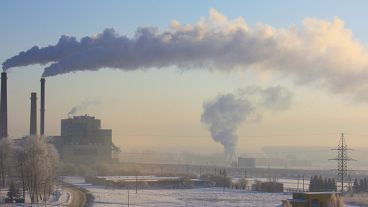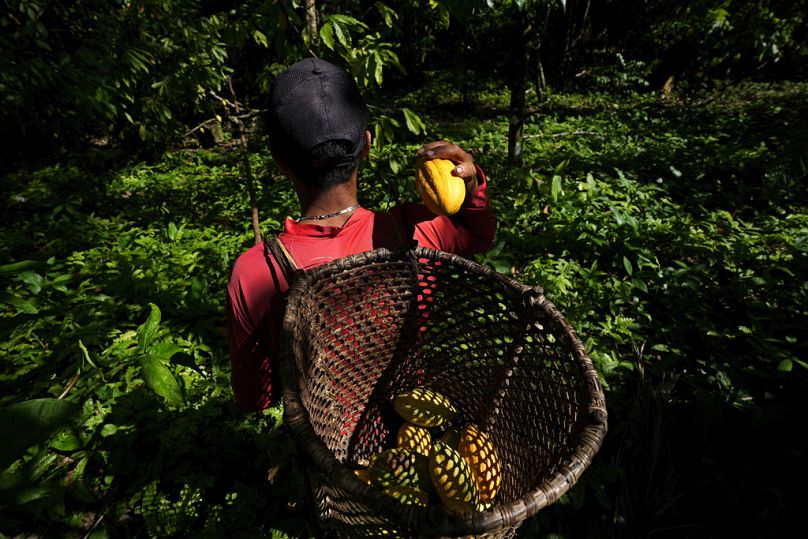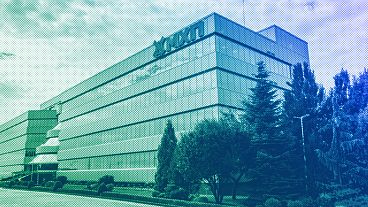We all need to invest in a system that rewards producers for keeping the forests we all depend on standing, Fanny Gauttier writes.
Tropical forests are indispensable: unmatched carbon absorbers, home to two-thirds of Earth’s biodiversity, and vital for the livelihoods of 1.6 billion people.
Yet, they are shrinking alarmingly fast. In 2023 alone, 3.7 million hectares of tropical primary rainforest vanished, almost the size of the Netherlands.
Deforestation, driven mainly by farming to meet our food demands, and forest degradation, largely fueled by unsustainable logging, pose a critical threat. Confronting both is crucial to safeguarding humanity and countless plant and animal species from irreversible harm.
The European Union Deforestation Regulation (EUDR), effective 30 December, is an important step in this battle. Despite mounting calls to weaken or delay it, the stated timelines and ambition of EUDR should be firmly backed.
However, without companies and governments taking responsibility to address the underlying drivers of deforestation and forest degradation, we risk falling short of actually reducing global deforestation.
Continuously failing at securing the livelihoods of farmers and rural communities and their access to a living income endangers the preservation of the remaining intact forest.
The trend where companies are tempted to merely do what is needed for EUDR compliance while neglecting the deeper issues at hand is alarming. Companies are investing in the extraction of the required data, or worse, shifting their investments to countries with stronger frameworks for managing forests, leaving vulnerable farmers and communities behind.
Companies and governments need to step up their support
This “check-the-box” mentality neglects companies’ responsibility to support the farmers in their supply chains and address systemic poverty—a significant contributor to deforestation. A third of our global food supply comes from smallholders.
Facing low prices and the harsh impacts of climate change, some turn to deforestation for quick financial gains by expanding their farms. The legislation won’t be enough if we don't address the economic pressures and give farmers incentives to switch to sustainable practices, such as climate-smart growing methods and regenerative agriculture.
Moreover, this approach does not enable farmers to properly develop their own data collection and management systems to make the most out of them, including for purposes other than solely producing EUDR-compliant products.
It also exhausts their capacities as they need to collect data for different standards and programs through different processes and with different timeframes.
Even though some producers are certified and receive additional support, many may struggle to produce EUDR-compliant products and provide highly precise geo-coordinates for land boundaries.
Both companies and governments need to step up support for farmers and forest communities in these labour-intensive and costly tasks. This is crucial to ensure their continued participation in the EU market and make the traceability of supply chains a reality.
For this reason, the Rainforest Alliance is offering support in EUDR compliance for certified partners and is launching a tool later this year to support non-certified coffee and cocoa supply chain actors.
Here's what has to be done
To effectively tackle deforestation and forest degradation, beyond achieving traceability and data collection as demanded by the EUDR, we need companies to adopt a holistic approach that extends beyond EUDR compliance.
This includes better buying terms for producers: creating more sustainable supply chains means sharing costs, risks, and value more fairly. Companies should pay producers better prices so they can earn a living income, and they should commit to long-term contracts. Both are crucial because they bring economic stability, which is fundamental to encouraging sustainable land management.
Investments in landscape programs are crucial. These initiatives tackle the root causes of deforestation and forest degradation by promoting sustainable land management practices, conserving biodiversity, and restoring degraded lands.
They create a holistic approach to land use, integrating agriculture, conservation, and community needs. This not only reduces deforestation but also enhances ecosystem services and builds resilience against climate change.
Targeted support for producers and suppliers to meet EU requirements is essential. This means for example training farmers and cooperatives to collect and manage key data such as geolocation points and polygons. Equally important are programs that offer training, resources, and financial support to help farmers adopt climate-smart, regenerative farming practices. These efforts not only prevent forest degradation and protect the land but also enhance yields and strengthen livelihood resilience.
Ensuring traceability (knowing a product's origin) and transparency — or public disclosure — help hold manufacturers, retailers and brands accountable for their commitments to fighting deforestation, sourcing more sustainably and directing investments to support farmers.
A credible assurance system with independent verification, such as the Rainforest Alliance certification program, should be seen as the gold standard for companies supporting EUDR compliance, substantiating claims, and improving farmers' livelihoods.
The key to achieving a world that values and preserves its forests and the communities that depend on them is for everyone to be fully committed. We all need to invest in a system that rewards producers for keeping the forests we all depend on standing.
Fanny Gauttier is Public Affairs Lead, Europe at the Rainforest Alliance.
At Euronews, we believe all views matter. Contact us at view@euronews.com to send pitches or submissions and be part of the conversation.
















